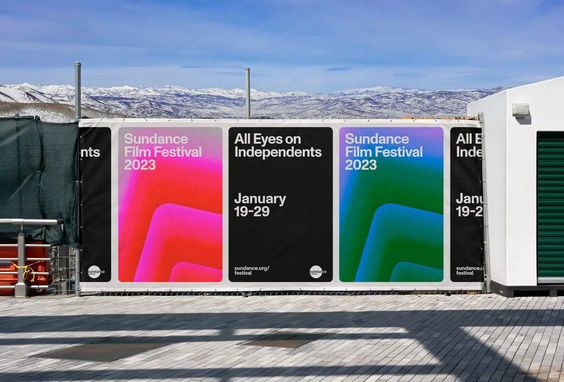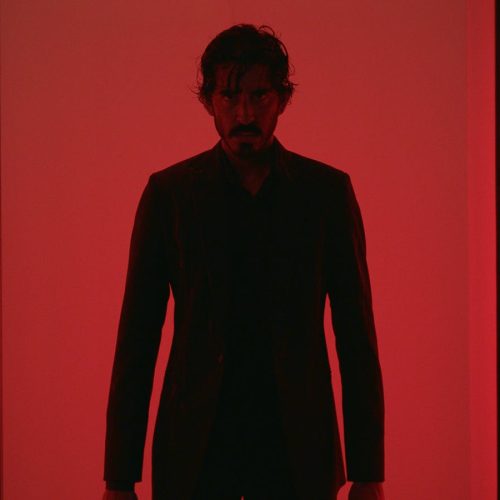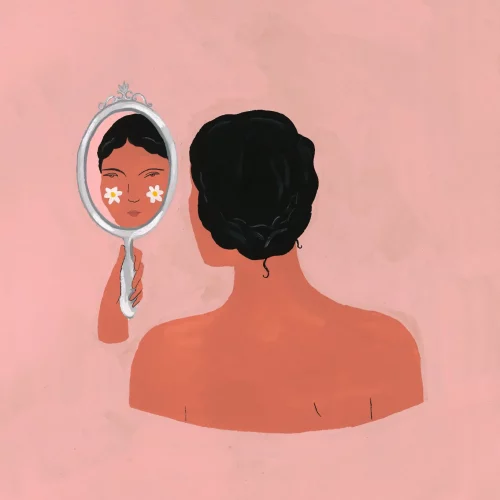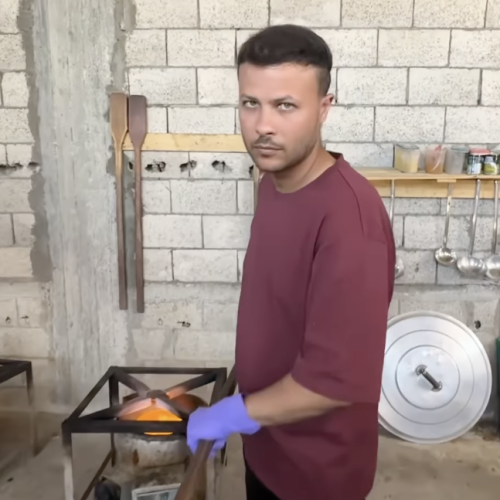The Sundance Film Festival, renowned for spotlighting indie films and diverse perspectives, kicked off its 40th edition with a powerful gesture. Over 700 filmmakers, artists, curators, and cultural figures unveiled “Film Workers for Palestine,” a collective dedicated to supporting the Palestinian cause. This diverse group urges all Sundance participants to shine a spotlight on the ongoing Gaza attacks throughout the festival’s 10-day run.
The group named “Film Workers for Palestine” calls on all Sundance attendees and participants to draw attention to the ongoing attacks on Gaza that have exceeded the 100 day mark, during talks, panels, and other programs throughout the 10-day festival— essentially, making Gaza the main focus of the film festival.
“As filmmakers and cinema workers, we are told our words and images have power, and that our work can help end injustice,” reads the missive, signed by directors Mike Leigh and Ken Loach, artist Sky Hopinka, actor Susan Sarandon, artist Molly Crabapple, producer James Schamus, and Palestinian filmmakers Larissa Sansour, among others. “For over 100 days, images of Israel’s genocide in Gaza have flooded our screens, but this has not stopped the continuing atrocities.”
Other signatures include Palestinian journalist and activist Mohammed El-Kurd, Egyptian actress Roasline Elbay, Egyptian actor Ahmed Magdy, Sex Education’s Dua Saleh, Pose’s Indya Moore, American musician and activist Saul Williams, and many more.
The film group’s letter demands and calls for an immediate ceasefire, an end to Israel’s blockade on Gaza, and the release of all Palestinian prisoners and hostages. Additionally, it calls on the US to stop its military aid to Israel and makes a wider demand for the end of the Israeli occupation of Palestine, denouncing “the double standard that presumes that only the allies of the US have a right to defend themselves.”
“We are aware that one day our community will create and champion films documenting this horrific genocide, yet many stay silent now, while we still have the chance to save lives,” the letter reads. “Our industry cannot continue with business as usual.”
Read the full letter below:
As filmmakers and cinema workers, we are told our words and images have power, and that our work can help end injustice. For over 100 days, images of Israel’s genocide in Gaza have flooded our screens, but this has not stopped the continuing atrocities. As human rights lawyer Blinne Ní Ghrálaigh stated at the International Court of Justice, this is “the first genocide in history where its victims are broadcasting their own destruction in real time in the desperate, so far vain hope that the world might do something.”
In just three-and-a-half months, the Israeli military has injured at least 61,000 people in Gaza and killed more than 24,000 people, at least 9,600 of whom are children, making this one of the deadliest aggressions in the 21st century. Palestinians in Gaza currently have no way to flee the bombs that have destroyed 70% of their homes, and have no access to water, food, fuel and electricity. We are shocked by the deaths of countless journalists, poets, and other artists who have been targeted by airstrikes. We mourn this loss of life, as we mourn the civilians killed on October 7th by Hamas, and those killed by Israeli soldiers and settlers in the West Bank since then.
We join a global solidarity movement to demand an immediate ceasefire in the region, an end to the 16-year siege on Gaza, and the release of all hostages and Palestinian prisoners. We echo the calls of Palestinians to address the root causes of this violence by ending the occupation and U.S. military funding to Israel. We reject the double standard that presumes that only the allies of the U.S. have a right to defend themselves.
We expect our shared cultural spaces to promote safety for filmmakers, artists and supporters who champion a free Palestine. And yet from Berlin to Los Angeles, our colleagues have been harassed, threatened, doxxed, disciplined, censored and fired for voicing their opposition to a military campaign repeatedly deemed genocidal by human rights experts. We reject German cultural institutions’ ban on workers who have supported the Palestinian right to self-determination, just as we reject the efforts to criminalize pro-Palestinian speech that have reached the halls of the United States Congress. We reject biased reporting by mainstream media that dehumanizes Palestinians, purposefully neglects crucial historical context, and continues to vilify Arab and Muslim communities. We reject the cynical weaponization of charges of anti-semitism that have been used to silence and condemn those calling for an end to genocidal violence and apartheid reality. In spite of this intimidation, we refuse silence, because speaking is the least we can do. We recognize the calls made by the Palestine Film Institute to hold international film festivals accountable, and in this moment of urgency we echo their call for filmmakers to use their platforms during Q&As, talks, and panels to read statements highlighting the Palestinian struggle. In spaces where safety and solidarity are lacking, we will create and ensure it.
In our capacity as filmmakers, actors, curators, film critics, and other workers essential to the international film industry, we stand for an end to genocide, apartheid, and repression, and we stand for the liberation of all people. We are aware that one day our community will create and champion films documenting this horrific genocide, yet many stay silent now, while we still have the chance to save lives. Our industry cannot continue with business as usual. We must do more than watch; we must act with conscience and continue to insist that Palestinian lives are equal to all others. We will not be complicit with anyone who acts otherwise.”
Visit the collective’s website for more information.









